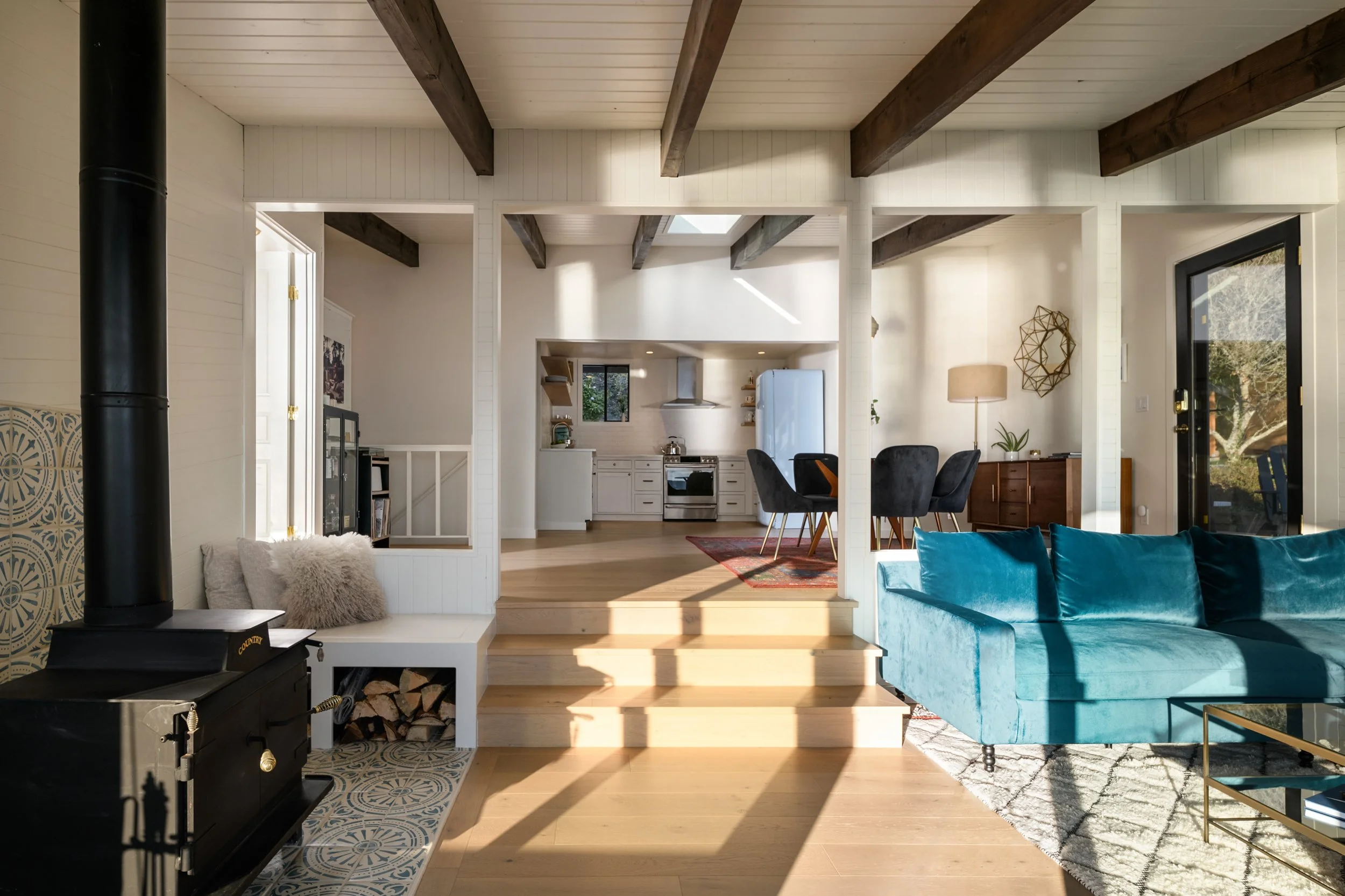The Environmental Benefits of Sustainable Design
Sustainable design is more than just a trend; it's a conscious choice that can have a significant positive impact on our planet. By incorporating sustainable practices into our homes and buildings, we can reduce our environmental footprint and create healthier, more sustainable living spaces.
Here are some real-world examples of the environmental benefits of sustainable design:
Case Study: Islandwood on Bainbridge Island
Islandwood, a nonprofit environmental education center located on Bainbridge Island, Washington, is a prime example of sustainable design in action. The center's buildings were designed and constructed with sustainability in mind, incorporating features such as solar panels, rainwater harvesting, and energy-efficient lighting. These sustainable practices have resulted in a significant reduction in the center's environmental footprint.
Fun fact: The toilets at Islandwood are composting. We had a chance to visit and tour where the waste ends up, and with the proper treatment, it was a wonderful experience that smelled like cedar (not like a port-a-potty)! Check out this article on their website about the water treatment “living machine” they utilize.
Case Study: The Bullitt Center
The Bullitt Center in Seattle is a certified Living Building, one of the highest standards of sustainable design. The building features a green roof, solar panels, rainwater harvesting, and a living wall. These sustainable features have resulted in a 60% reduction in energy consumption, a 98% reduction in potable water use, and a 99% reduction in waste sent to landfills.
The Living Future Institute is a sustainable education and certification organization that Waldron Designs is proud to belong to, and receive training from. Take a look at the Bullitt Center’s website here.
Here are some of the key environmental benefits of sustainable design:
Energy Efficiency
Reduced energy consumption: Sustainable design focuses on minimizing energy use through features like efficient insulation, solar panels, and energy-saving appliances.
Lower greenhouse gas emissions: By reducing energy consumption, we can significantly decrease our carbon footprint and contribute to mitigating climate change.
Cost savings: Sustainable design can lead to long-term cost savings on energy bills.
Water Conservation
Reduced water consumption: Sustainable design incorporates water-saving features such as low-flow fixtures, rainwater harvesting systems, and drought-tolerant landscaping.
Preservation of water resources: By conserving water, we help to protect our planet's precious water resources.
Cost savings: Reduced water consumption can lead to lower water bills.
Waste Reduction
Minimized waste generation: Sustainable design focuses on reducing waste through practices like recycling, composting, and using durable materials.
Preservation of natural resources: By reducing waste, we help to conserve natural resources and minimize the need for landfill space.
Cost savings: Reduced waste can lead to lower waste disposal costs.
Improved Indoor Air Quality
Reduced exposure to harmful pollutants: Sustainable design prioritizes indoor air quality by using non-toxic materials, improving ventilation, and reducing exposure to pollutants.
Healthier living: Better indoor air quality can contribute to improved health and well-being.
Increased comfort: Improved air quality can make your home more comfortable and enjoyable.
Habitat Preservation
Protection of natural ecosystems: Sustainable design practices can help to preserve natural habitats and biodiversity.
Support for local ecosystems: By choosing sustainable materials and practices, we can support local ecosystems and promote biodiversity.
Conclusion
Sustainable design offers numerous environmental benefits, from reducing energy consumption and water waste to improving indoor air quality and preserving natural habitats. By incorporating sustainable practices into our homes and buildings, we can create a healthier, more sustainable future for ourselves and generations to come.
You may also enjoy:








Waldron Designs, LLC is passionate about designing spaces rooted in their context and responsive to the natural environment. Are you ready to create sustainable permanence with your home?
GET IN TOUCH!